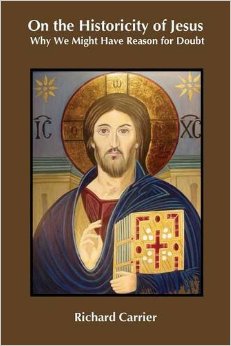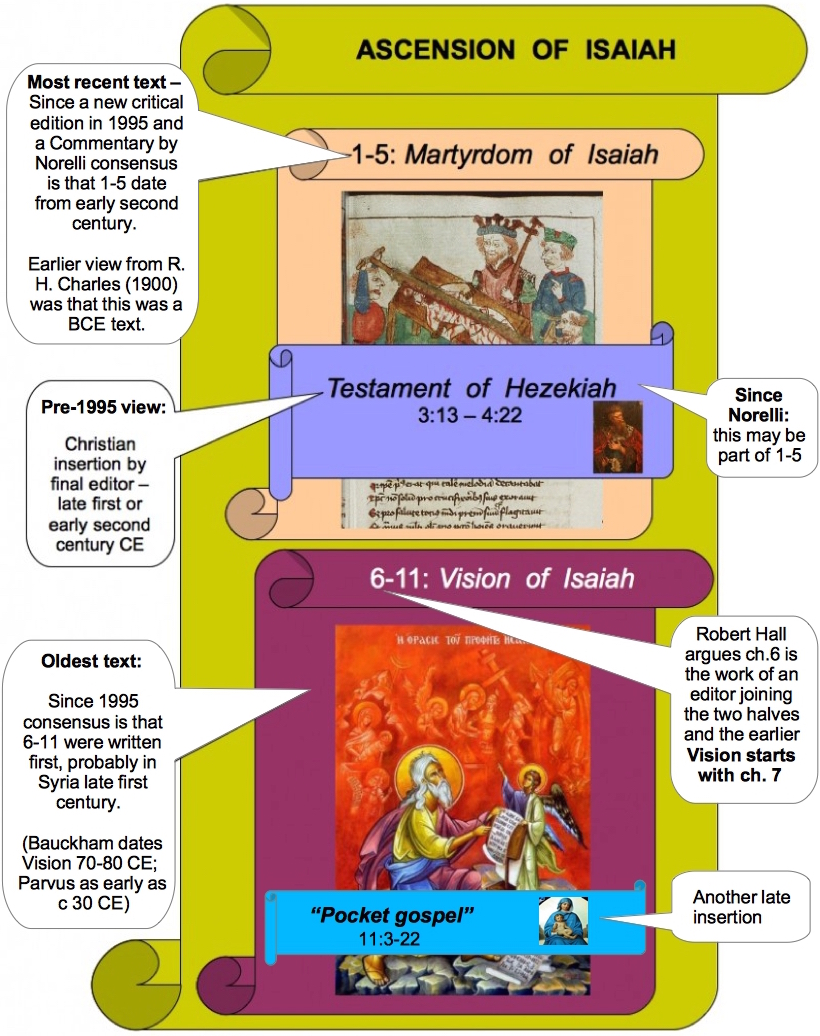We have read Richard Carrier’s response to James McGrath’s latest post in Bible and Interpretation on Carrier’s On the Historicity of Jesus. Some commentary has focussed on Carrier’s tone and lost sight of McGrath’s own commentary — a serious oversight.
McGrath heads his response Richard Carrier’s Dishonesty. That title is not a joke.
Carrier’s title was deliberately ironic: In Which James McGrath Reveals That He Is a Fundamentalist Who Has Never Read Any Contemporary Scholarship in His Field. We know it is ironic because his first words following that title are:
The title of this article is a joke. Sort of. But maybe not as much as you think. As I’ll show. Because James McGrath has added another entry to his bizarrely uninformed critique of On the Historicity of Jesus, and this time is the most dishonest of the bunch. For to get the result he wants, he has to essentially become a Christian fundamentalist, denying there is any mythmaking in the Gospels at all, and reject all non-fundamentalist scholarship of the last fifteen years.
McGrath then accuses Carrier of claiming he (McGrath) has claimed that the Gospels have no symbolic stories in them.
It is ironic that Richard Carrier’s blog post which accuses me of lying about his work blatantly misrepresents what I wrote. No one who has read things I’ve written – or listened to things I’ve said – would ever believe that I claimed that the Gospels have no symbolic stories in them, when I have so often said the opposite. The infancy stories (which I’ve discussed before) in the Gospels are just that – and are much like the infancy stories told about other historical figures besides Jesus.
McGrath’s accusation is false. He fails to supply any quotation or paraphrase of any place where Carrier said McGrath claims the Gospels have no symbolic stories. Carrier nowhere suggested McGrath has claimed the gospels do not contain symbolic stories. Some people would call McGrath’s accusation here a lie.
Carrier’s complaint rests entirely on the readers’ understanding that McGrath knows better. That Carrier is being ironic and directing readers to McGrath’s disingenuousness or word-games is evident in the following:
Do you know who does disdain all that these scholars have shown regarding the Gospels being allegorically constructed? Christian fundamentalists. Do you know who pretends their view is the mainstream view and all other views are “disdained” in the field when in fact the opposite is true? Christian fundamentalists. Who is McGrath siding with? Hm.
and throughout….
McGrath appears to be saying this is my own contrivance, that none of that went on. Once again, that’s the position of a Christian fundamentalist.
McGrath then adds
I’m guessing that the criticisms I’ve offered in my recent articles must be too damaging to mythicism for Carrier to respond to them in a manner that is professional, scholarly, and fair, so that instead he is resorting to deception and expletives. But goodness me, if you can’t deal with criticism in a rational and mature manner, you really shouldn’t try to produce something that even pretends to be scholarship, never mind the actual thing.
“I’m guessing”. Interesting. So McGrath has no apparent wish to respond to the clear reasons Carrier set out for his response. Don’t bother reading Carrier’s content. Focus on the one expletive in the last sentence and entitle yourself to substituting McGrath’s “guessing” for the content of Carrier’s post.
And misrepresent McGrath’s grossly unprofessional encounter with Carrier’s work (it would be misrepresentation to call it a “review”) as honest “criticism”.
Carrier exposes the unprofessional, the unscholarly, the unfair and the deceptive nature of McGrath’s criticism. McGrath ignores the detailed evidence Carrier cites to support each accusation and resorts to a supercilious tu quoque.
McGrath’s review is itself only a “pretence at scholarship” since it failed to provide the most fundamental requirement of any scholarly review: an explanation of the author’s overall argument and methods. (It is also important that we don’t lose sight of the “establishment’s” role in this. Bible and Interpretation claims to be a peer-review page so serious questions must be pointed at them, too. BI knows Carrier’s book was peer-reviewed so that knowledge alone should have alerted them to something amiss with McGrath’s posts — even apart from the several contradictions and fallacies in them.)
McGrath’s “review” committed the very same fallacy at the heart of climate change contrarian scientists: cherrypicking:
Cherry picking was the most common characteristic they shared. We found that many contrarian research papers omitted important contextual information or ignored key data that did not fit the research conclusions. (Here’s what happens when you try to replicate climate contrarian papers by Dana Nuccitelli)
Contrast McGrath’s “guessing” with the factual depth of Carrier’s rebuttal: Continue reading “McGrath Guessing Versus Carrier’s Content”
Like this:
Like Loading...






